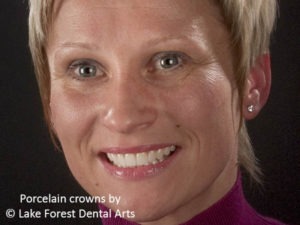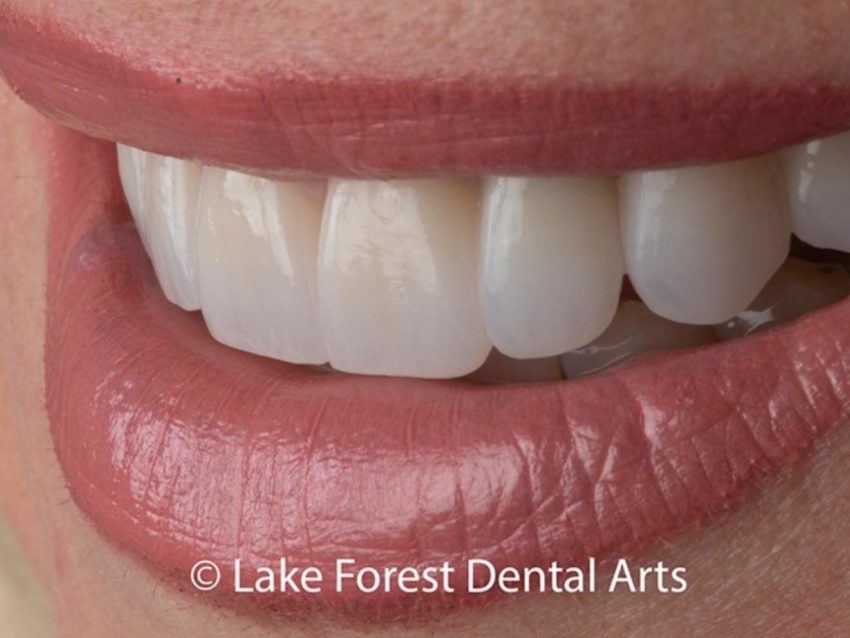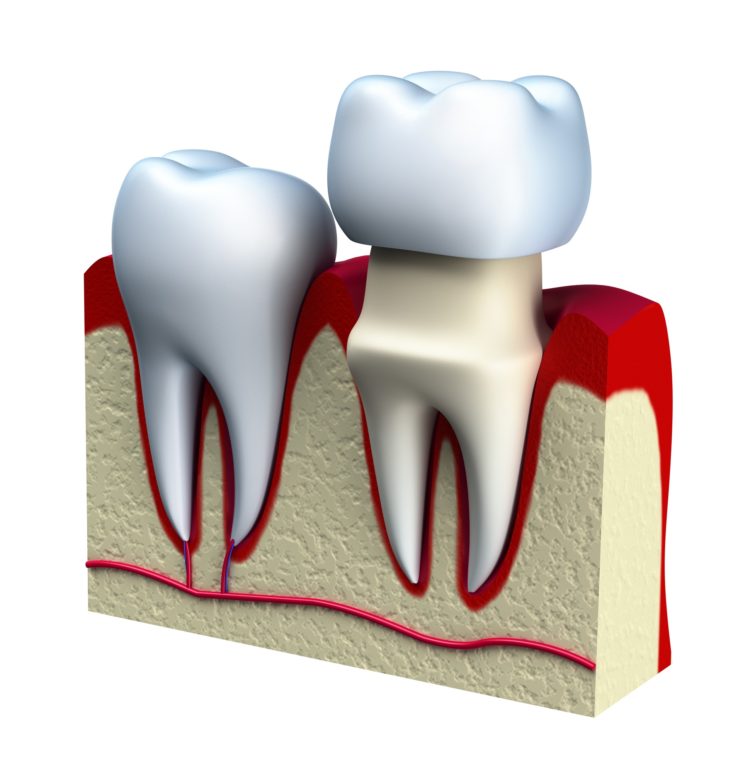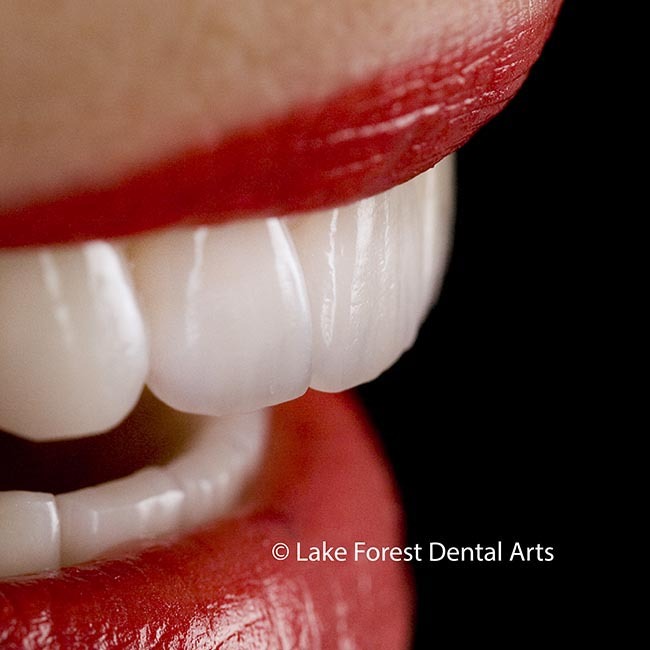
Teeth crowns can be used to restore teeth and improve your smile. They are used when a tooth has sustained severe tooth damage, such as a broken tooth or severe cavity.
When made well, they can be beautiful solutions that will blend seamlessly with your smile. You may qualify for a cosmetically pleasing type of crown for a wide variety of reasons. To learn more about what you can expect, take a look at the following:
What are Teeth Crowns?
These restorations restore a natural tooth to full contour while replacing all missing tooth structure. Crowns or “caps” fit over and fully encase the visible portion of a tooth down to the gum line. Unlike fillings, they provide full coverage, resting over your tooth rather than within it. You will find that they are available in a wide variety of materials.
Most general dentists offer metal or porcelain fused to metal crowns. All porcelain caps are more difficult to do but they are growing in popularity. If your dentist does them, they provide patients with a lifelike and beautiful finish.

Our patient was a Russian diplomat serving in Chicago consulate. She had suffered more from her old dentistry than from neglect. Her dream was to replace her ugly artificial dentistry with a healthy “American smile”. Her teeth makeover was artistically completed with teeth crowns.
Potential Reasons For Permanent Crowns
You may require teeth crowns for a long list of potential reasons. First, understand what you can expect from a cap. It fits over and encloses your tooth. It is made of a sturdy material that you can expect will provide protection, coverage, and structural support. You may require one in one of the following instances:
- You broke your tooth and require restoration.
- Your tooth suffered a severe cavity that a filling cannot address
- You just underwent root canal treatment and need coverage and support.
- Your tooth is cosmetically damaged beyond what we can achieve with other treatments, such as veneers.
- You have chosen to replace a tooth with a dental implant. The implant then supports a beautiful crown.
More in depth article about reasons for crowns
When are Teeth Crowns the Right Form of Restoration?
With damage caused by either decay or trauma, a cap is often the best form of restoration. That is because affixing it is a minimally invasive solution, yet a comprehensive and effective one.
- All types can be added quickly, and the procedure is fast and comfortable for most patients.
- Yet they are also built to withstand the pressure one exerts while chewing, allowing fragile teeth beneath to remain safe.
- They can be made of metal, but most patients and dentists prefer the ceramic versions.
- Porcelain crowns are designed to look incredibly natural, creating a beautiful and nearly seamless restoration. The service life varies greatly from one person to the next. It will depend on diet, hygiene, and quality of the dentistry. If it fits well, the service life should be at least 10 years and many go 50 years or more.
Many Issues Can Be Addressed with Teeth Crowns
 Teeth crowns can be used to repair decay
Teeth crowns can be used to repair decay
Simple cavities, left untreated, can create the need for more extensive restorative treatment down the line. Teeth cannot repair themselves the way some body parts, like your skin, can. If you fear that you may need restorative dentistry, it is wise to schedule an appointment quickly. Your dentist can fix your problem confidently and comfortably.
Metal crowns are still offered by many dentists. They are normally limited to use in the back molars. Most dentists now recommend porcelain versions for more visible teeth. That’s because these ceramic crowns are both strong and nearly seamless. Long term restorations that contain metals tend to show the metal after 10 years.
Dental Trauma
Are you concerned because you recently suffered trauma to your smile? If so, your teeth might be the last thought on your mind, initially following the accident. However, any trauma to your teeth should certainly be addressed. Over time, dental trauma can lead to a variety of problems for your smile, some visible and others unseen. Damage caused by trauma can lead to painful infections. Even minor chips and cracks can worsen as you eat.
Trauma to your mouth can cause a chip, crack, or some other form of damage to your teeth. The solution is often the same, a veneer or a cap. Caps can be used to protect fragile or otherwise damaged teeth. They create a barrier against further wear, decay, or worsening damage.

This diagram shows how a full or 3/4 crown fits.
What is the procedure for getting teeth crowns?
A dental crown procedure starts with preparation of the enamel. Porcelain versions are getting thinner all of the time. This requires less tooth reduction. An analog or digital impression of the tooth is taken and sent to a lab. A temporary crown is created and worn until the crown is ready. After it is returned from the lab, it cemented or bonded into place.
Restorative Treatment May Be Necessary Even Without Obvious Signs of Trouble
Trauma, decay, and nerve death, are not always obvious with symptoms such as pain. Even if no visible damage has been done to your teeth, it does not ensure that there isn’t a problem. Injuries to teeth can sometimes cause intrinsic damage that will not be visible or even felt. They can still, however, lead to infection.
Your restorative dentist can use an x-ray to check for any potential problems, and provide treatment as necessary.
Teeth Crowns Offer Versatile Protection
There are many versatile ways these restorations can be used. They can be used to restore damaged teeth and to replace those that have fallen out or been extracted. Porcelain is similar to natural teeth, in that it is strong and stain resistant. This makes porcelain restorations a great, natural looking way to address tooth damage or tooth loss. These natural looking crowns also age similarly to real teeth, making them a lasting restorative option.
We Offer Beautiful High Quality Restorations
We offer several types of dental crowns composed of slightly different materials and compositions. Porcelain, similar to your natural teeth, is slightly translucent and durable. There are many different kinds of porcelain such as: Procera, Feldspathic, Emax, and Zirconium. No matter what material we use, you can expect your tooth to look natural, while offering the function you need.
If you are planning any significant dental work, please consider getting another opinion. The American Dental Association states that articles such as this are not a substitute for professional advice, diagnosis, or treatment. The ADA recommends that you see a dentist for further information. To schedule a consultation, call our office today at (847) 234-0517.
Our practice serves the Chicago metropolitan area including the North Shore and Northwest suburbs.

 Teeth crowns can be used to repair decay
Teeth crowns can be used to repair decay